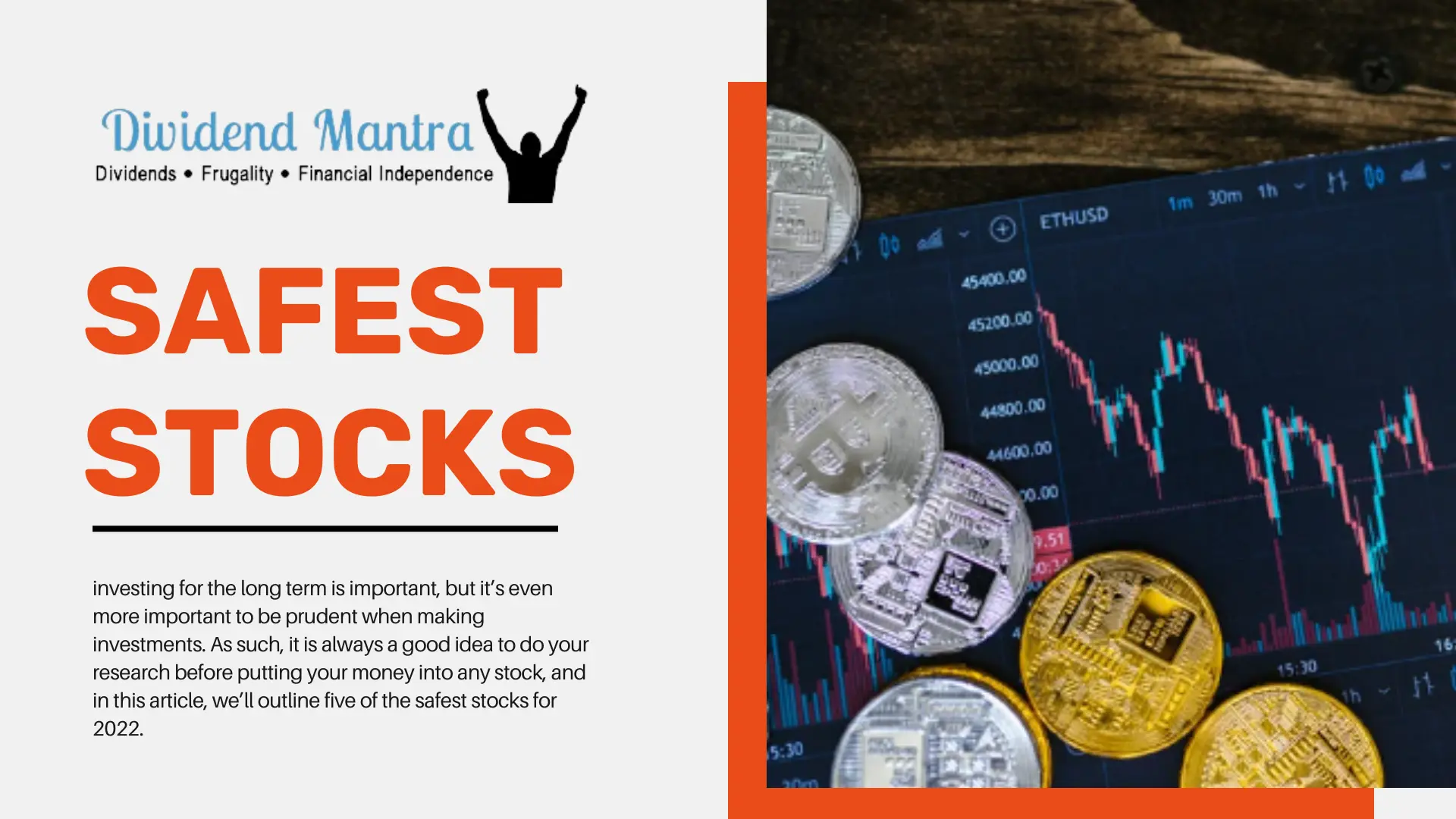11 Tips For New Investors: Avoiding Scams and Finding Great Opportunities

Imagine being able to invest and use the money to pay off debt or plan for your future. But make sure you include avoiding scams as one of your main investment priorities.
That way, you can make sure your money goes to good use. Not only can you enjoy the benefits of investing, but you can keep scammers from getting to your finances.
Tips for Avoiding Scams
As a new investor, you may want to start investing as much as you can. However, investing in everything can make avoiding scams almost impossible.
If you only focus on the good parts, you may not be able to see the signs that make an investment a scam. Consider a few tips for avoiding scams as a new investor.
1. Do your research
Before you put any money into an investment, do some research to make sure it’s a legitimate opportunity. Read a book on something like dividend investing. Books can tell you more about how investments work so that you know what to expect.
You can also use Google to search for information on specific investments to see if they’re a scam. If you know people who invest, you can also ask them about the investments they like.
Research the history of a particular investment. Many investments will have ups and downs, and it can help to know the history when looking at the future.
Do as much research as you can on the investments you’re considering. That way, you can choose the investments that will work best so that you can avoid scams.
2. Ask questions
As part of your research, you should ask any questions you have. If you get to meet with someone selling you an investment, ask them questions such as:
- How long has the investment been around?
- What investment fees are there?
- How does the company make money?
- What type of investment is it?
Knowing the type of investment and its cost and history can help you determine if it’s a good fit. And if the person selling the investment won’t answer your questions, they may be trying to scam you.
Asking the right questions can be an excellent way to detect a scam. Then, you can know to move on to a different investment.
3. Protect your financial information

Some people may try to get your financial information to sign you up for their investment. However, don’t give out anything unless you know for sure that the person is legitimate.
Don’t give anyone your credit card number or banking information. You should also protect your social security number and any other financial numbers.
If someone pressures you to give up that information, they might be a scammer. You should only have to give out your financial information when you feel comfortable.
You can also use a gift card or another payment method that won’t affect your bank account or credit cards. Then, you can protect yourself if an investment turns out to be a scam.
4. Verify the company
If you get an email or private message about an investment opportunity, don’t click any links. Instead, search for the company and visit the website directly.
Not only can you make sure the opportunity is real, but you can avoid any viruses or malware that may be in one of those links.
When verifying a company, research the investments they offer, their rates, and find reviews. If you find that the company is legit, you can sign up for the investment on their website.
But if you can’t find a website or realize that it’s a scam, you can protect yourself. You can delete the email and block the sender to avoid future attempts to contact you.
No products found.
5. Check the salesperson’s background
If an individual salesperson contacts you, you should figure out if that person can sell investments. Find out if they have a license to sell securities in your state or if they’ve taken an exam for the license.
You should also research their background to see if they’ve had any legal issues as a seller. If so, they may be trying to scam you.
When someone you know tries to sell you an investment, you should still be cautious. Ignore who they are as a friend or relative and focus on them as a securities seller.
If you don’t trust them to sell you a legit investment, don’t buy one. You don’t have to support someone simply because you know them personally.
6. Guaranteed returns don’t exist
If someone tells you they can guarantee specific results, don’t invest. While some investments can provide excellent returns, there’s no way to ensure that will happen.
The market can fluctuate, and you may experience a loss. If you don’t lose any money, you may only experience moderate gains from your investment.
That in and of itself doesn’t signify a scam. However, avoiding scams means paying attention to big promises.
If an investment opportunity advertises high returns, be skeptical. Know that you may not make that much. But also consider that someone may offer those guarantees as a way to attract new investors.
7. Quick gains don’t exist either
Another thing to look for when avoiding scams is the promise of making money quickly. While you may luck out and invest before a huge boom for the market, you may not.
It can take time to see significant returns from your investments. The market will go up and down, but it may not move enough to make you a lot of money on your initial investment.
You may need to wait months or years before you see significant gains, depending on the investment. Investing can be a great way to increase your wealth, but it’s not a get-rich-quick scheme.
However, investments claiming you can get rick quick probably are scams. Figure out the average return for your investments and see if an opportunity is in line with that. Then, you can find good opportunities for the long-term.
8. You don’t owe anything to anyone
Sometimes, people selling investments may invite you for lunch or to a seminar. They’ll use the meeting to discuss their opportunity and convince you to sign up.
However, you don’t have to sign up for something if you don’t want to. Remember that you don’t owe anyone an investment just because they offered you free food or a free seminar.
Consider if their proposal is legit and if it even interests you. If not, don’t be afraid to walk away. You shouldn’t have to explain your reasoning to someone.
A genuine securities seller will want to make sure you feel comfortable investing. If they do keep trying to get you to buy after you say no, it may be a scam.
9. Good investments don’t have a deadline

Another tactic that scammers can use is to tell you the investment is only available for a few hours or days. Giving a deadline can be an easy way for them to get people to sign up quickly.
However, having that sort of pressure can be a sign of a scam. You should have time to research the investment and decide if it’s right for you.
For example, the stock market will always be there. You can start a retirement account at any time. If someone tells you their opportunity will end soon, they might be trying to scam you.
Someone selling a good investment will let you take your time to think about it. Then, you can go into the opportunity knowing as much as you can, and you can feel good about your decision.
10. Consider peer pressure
Avoiding scams can be even more difficult if your peers are in on the investment. In some cases, your peers are the ones telling you to invest. However, a scammer may also claim that tons of people have bought in already.
Feeling that peer pressure can make you want to join something, even if it doesn’t feel right. You may want to avoid the feeling of missing out on something great.
Instead of regretting not joining, you may decide to join. But that can be an easy way for scammers to convince a lot of people to sign up for an investment.
Before you sign up, consider if other people are making money with the investment. Figure out if people are happy with joining the opportunity or not. Then, you can determine if it’s worth it.
11. Review your account statement
Once you sign up for an investment, check your account statement as soon as you get it. Look for any fraudulent transactions or other activity.
You should also consider if the statement looks like someone edited it to make it look better. Some scammers may change things to hide problematic transactions.
Another thing to consider is the overall formatting. If the statement looks unprofessional, it may be due to a scam. Compare how the statement looks to your bank statement to determine if it is professional.
If you find problems with your account statement, get out of that investment as soon as you can. Then, you can resolve the fraudulent activity and avoid future scams.
What to Do If You’re a Victim of a Scam
While you should check for different signs before signing up, avoiding scams may not always be possible. If you try a lot of investment opportunities, you might run into a few scams.

Consider what you can do if someone scams you so that you can protect yourself and others.
Contact the bank or card company
First, you should contact the bank or credit card company that you used to pay for the investment. You can tell the company about the fraudulent charge and ask them to refund you the money.
This can work if you pay for something with a card or if a scammer transfers money from your account. You can dispute the charge and get at least some of your money back, depending on the situation.
If you pay for an investment using an app such as PayPal, you can contact the app you used. Then, you can tell them about the charge. You may also want to contact your bank if you connected your account to the app in question.
Change your password
If a scammer happens to have access to your online banking app or another money app, change the password for that account. You can also ask your bank to add a password to verify you over the phone.
Whenever you or someone else tries to access the account, you will need to use the new password. If the scammer tries to access it, you can keep them out.
Make sure your new password is strong and unique to that account. Then, the scammer can’t try to guess it from your other passwords.
Update your computer
If you clicked a link in an email or message regarding an investment, you should update your computer’s security settings. Download the latest version of security software to protect yourself.
Then, you can scan your computer for any malware or viruses, and you can delete problematic files.
Even if you didn’t click on a link, updating your computer can help when avoiding scams in the future. You can make sure you have software that can get rid of viruses before they do any damage.
Report the scam
The next thing you can do is report the scam to the Federal Trade Commission (FTC). Reporting the scam can help the FTC track down the scammer because your report can help find trends.
Then, the FTC can find and stop them before they scam anyone else. You may not be able to avoid that scam, but you can help others.
Find Financial Freedom
Investing can be an excellent way to build a life of financial freedom. However, scammers may try to take advantage of you, especially when you’re new to investing.
Fortunately, avoiding scams is possible if you know what to look for when investing. Then, you can save your money and find better investment opportunities.
Last update on 2024-04-25 at 20:11 / Affiliate links / Images from Amazon Product Advertising API






